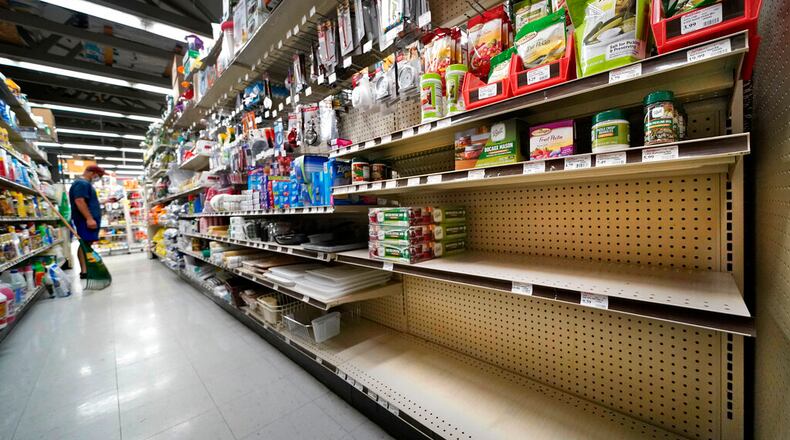“We have been everywhere,” said Vanessa Ware of Hurricane, West Virginia, who said she went to at least a half-dozen stores after running out of supplies for her tomatoes, peppers, corn and sauerkraut canning. She still had enough leftover jars and lids but not the bands, so she started looking — and looking. And a search of online retail sites proved to be frustrating due to price gouging.
The entire canning industry has seen an unprecedented demand for supplies as more consumers prepare meals at home during the pandemic, said a spokesperson for Newell Brands, owner of Ball, which produces Mason jars and other supplies.
“The demand has resulted in supply constraints, extended lead times and recently limited product availability at stores and online,” the spokesperson said. To replenish the stock as quickly as possible, the company said it’s increased glass production, found additional lid manufacturers and expanded its pack out locations.
The scarcity didn’t surprise Elizabeth Andress, project director for the National Center for Home Food Preservation.
“There seem to be more people canning than ever before -- from the much higher number of inquiries coming into the National Center for help than in the past, and from the large number of participants I hear are attending virtual food preservation classes that Extension educators around the country have been offering,” said Andress, a professor and Extension food safety specialist at the University of Georgia.
More people put in gardens or expanded their existing plots this spring out of initial fears of a possible food shortage or apprehension about going to the grocery store during the pandemic.
The master garden helpline at the University of Vermont Extension has received more than 500 emails and phone calls since mid-March from new gardeners, those who are expanding their gardens or seeking help with plant disease issues, a jump from previous years, said Lisa Chouinard, the helpline assistant.
“I do believe this is due to COVID as more people are wanting to grow their own food, as well as provide food for those who are in need,” she said by email.
Ware, in West Virginia, was finally able to find some bands for her canning. Her mother-in-law, two hours away, brought them to her. She’s since been able to get more, but only after paying extra because the bands were sold in a package of 12 with the jars and lids, which she didn’t need.
“We don’t need all those jars when we already had them,” she said.
____
AP reporter John Raby contributed to this report from Charleston, West Virginia.
About the Author
